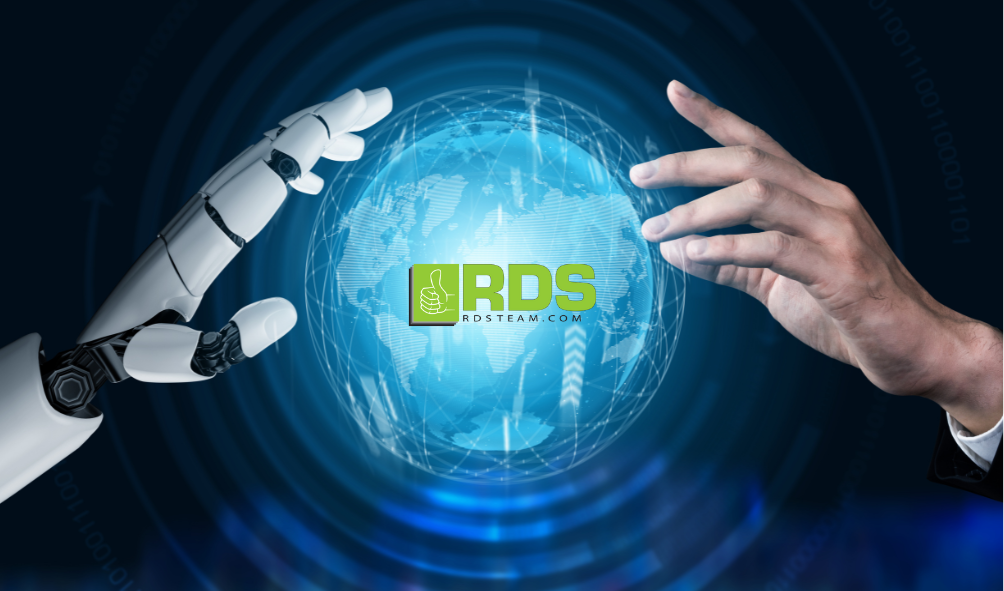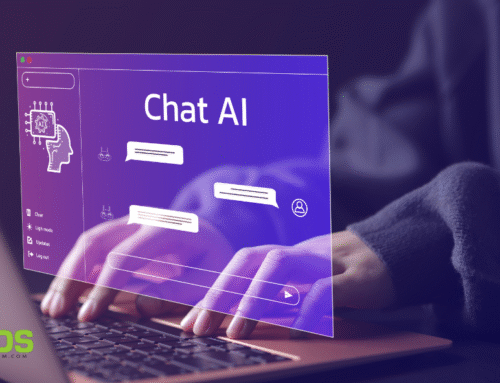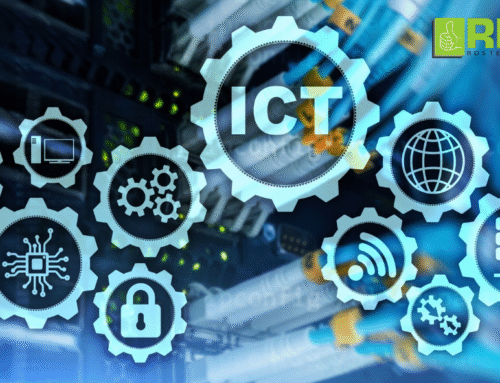Getting to Know Artificial Intelligence
Artificial Intelligence (AI) is a powerful technology reshaping many parts of your daily life and work. You encounter AI in everything from personalized recommendations to automated customer service, making tasks faster and often more accurate. Understanding both the advantages and disadvantages of AI helps you use it wisely and prepares you for its growing role in various industries.
AI offers clear benefits such as automating repetitive tasks, enhancing decision-making through data analysis, and improving healthcare diagnostics, all of which can boost your productivity and efficiency. However, there are also important drawbacks like job displacement, ethical concerns, and risks to privacy that you need to be aware of when integrating AI into your environment.
By exploring these pros and cons, you’ll gain a balanced perspective on how AI impacts your world today and what challenges may arise as the technology advances. This knowledge helps you make informed choices and use AI tools effectively.
Key Concepts of Artificial Intelligence
Understanding artificial intelligence involves grasping how machines simulate human thinking, the types of AI, and the role of data and algorithms. These elements work together to create systems that learn, make decisions, and solve problems without constant human input.
Defining Artificial Intelligence and AI Technology
Artificial Intelligence (AI) refers to technology designed to perform tasks that normally require human intelligence, such as reasoning, learning, and problem-solving. AI technology includes software and machines capable of mimicking these cognitive functions.
You interact with AI daily through applications like speech recognition, language translation, and autonomous vehicles. AI systems operate by processing data and executing programmed instructions, improving over time as they learn from experience. This blend of hardware and software enables AI to perform complex tasks more efficiently than traditional computing.
How AI Algorithms and Machine Learning Work
AI algorithms are sets of rules that guide machines in processing data and making decisions. Machine learning (ML) is a subfield of AI where algorithms improve automatically by learning from data, rather than following fixed instructions.
You can think of machine learning as teaching your system through examples. For instance, you feed an algorithm labeled images, and it learns to recognize patterns, enabling it to identify new images correctly. These algorithms vary, including supervised learning, unsupervised learning, and reinforcement learning, each suited to different problems and datasets.
Types of Artificial Intelligence (AI): Narrow AI and AGI
AI comes in different forms, primarily Narrow AI and Artificial General Intelligence (AGI). Narrow AI is designed to perform specific tasks, like voice assistants or recommendation systems. It excels within a limited scope but cannot perform beyond its programming.
AGI, on the other hand, aims to replicate human-level intelligence across a wide range of tasks. Unlike Narrow AI, AGI would understand, learn, and apply knowledge flexibly in many contexts. While AGI remains mostly theoretical today, advances continue toward broader, more adaptable AI systems.
Training Data and Data Science in AI
Training data is the fuel for AI systems; it consists of large datasets used to teach AI algorithms how to identify patterns and make predictions. The quality and quantity of this data significantly affect AI accuracy and reliability.
Data science plays a crucial role by organizing, cleaning, and analyzing training data to make it useful for AI. It involves statistical methods and computational tools to extract insights. Your AI system’s performance depends on this careful preparation, which helps prevent bias and errors in AI outcomes.
Advantages of Artificial Intelligence
Artificial intelligence offers concrete improvements in how tasks are performed across many fields. It helps you automate routine work, make better data-driven choices, maintain reliable operations around the clock, and access breakthroughs in critical sectors like healthcare and transportation.
Automation and Increased Efficiency
AI excels at automating repetitive, time-consuming tasks. For example, chatbots and voice assistants like Alexa and Siri handle millions of customer inquiries daily, freeing your staff to focus on complex issues. This reduces wait times and operational costs.
In manufacturing and logistics, AI-powered robots and systems execute precisely programmed tasks faster and with fewer errors than humans. Automation also enhances productivity by accelerating processes such as sorting data, scheduling, and quality control.
By delegating routine work to AI, you can scale your operations without proportionally increasing resources. This lets you optimize budgets and boost output consistently.
Enhanced Decision Making and Accuracy
AI processes large volumes of data that would overwhelm human analysts. It uses machine learning models and natural language processing to identify patterns and generate actionable insights in real time.
For example, in finance, AI algorithms detect transaction anomalies faster than manual reviews, reducing fraud risks and errors. GPT-based systems assist with report generation and customer interactions, providing accurate and contextually relevant information.
Healthcare benefits from AI’s ability to analyze medical images and patient histories quickly. This increases diagnostic accuracy and supports personalized treatment plans. You can rely on AI to support decisions with data-driven evidence, improving outcomes and reducing costly mistakes.
24/7 Availability and Consistency
Unlike humans, AI systems such as virtual assistants and automated customer service bots operate continuously without fatigue. This 24/7 availability ensures your customers receive uninterrupted service and support.
Consistency in responses is another strength. AI does not experience mood shifts or distractions, so it provides reliable, standardized outputs. This builds trust and improves user experience.
Your business can also use real-time AI insights to adapt instantly to changing conditions, such as updating delivery routes based on current traffic in transportation or responding to market fluctuations in finance.
Innovations in Healthcare, Finance, and Transportation
AI drives significant advances in several high-impact industries. In healthcare, it aids early disease detection, drug development, and robotic surgery, which enhances precision and reduces recovery time.
In finance, AI powers credit scoring, risk assessment, and personalized financial advice. This improves efficiency while helping you manage regulatory compliance and security.
Transportation benefits from AI in the development of autonomous vehicles and intelligent traffic management systems. These technologies enhance safety, reduce congestion, and optimize fuel consumption.
Adopting artificial intelligence (AI) in these sectors often leads to increased customer satisfaction, reduced costs, and a competitive edge through continuous innovation.
Disadvantages and Risks of Artificial Intelligence
AI brings complex challenges that can affect your job security, privacy, and decision-making processes. Understanding these risks helps you anticipate possible impacts and make informed choices.
Job Displacement and Economic Impact
AI automation threatens jobs that involve predictable, repetitive tasks. Roles in manufacturing, customer service, and even some professional fields like law and accounting face significant transformation or elimination. For example, AI can quickly analyze vast legal documents, reducing the need for many attorneys.
By 2030, up to 30% of work hours in certain economies could be automated, disproportionately affecting lower-wage and minority workers. While AI may create new jobs, these often require advanced skills that you might need to acquire to stay competitive. Without continuous training and upskilling, you risk being left behind in the shifting labor market.
Bias, Data Privacy, and Security Concerns
AI systems often rely on data that can be incomplete or skewed, leading to biased outcomes. This bias can affect hiring, lending, and law enforcement, sometimes reinforcing existing social inequalities. Facial recognition tools, for example, have shown racial bias, raising concerns about fairness.
Your personal data is frequently collected by AI applications, sometimes without clear consent or security guarantees. Incidents like AI chatbots exposing private conversations highlight the risks to your privacy. Additionally, AI tools used for fraud detection or surveillance can sometimes overreach, creating ethical and legal dilemmas about your rights and protections.
Lack of Human Judgment and Empathy
AI lacks the ability to understand human emotions, context, and ethical subtleties. Decisions made by AI, especially in sensitive areas like healthcare or criminal justice, may miss important nuances that a human would consider. This limitation can lead to harmful or unfair outcomes despite AI’s efficiency.
While AI can improve consistency, it cannot replace the empathy and moral reasoning that guide human judgment. You should be cautious about relying solely on AI for decisions that affect people’s lives, as it may overlook the complexities that require understanding beyond data patterns.
Implementing AI Responsibly and Future Considerations
When adopting artificial intelligence (AI) technology, you must balance innovation with clear guidelines to protect data privacy and ensure ethical outcomes. Responsible AI deployment requires defined strategies, ongoing education, and attentive human oversight. These steps help you improve customer experience while avoiding common pitfalls.
Best Practices for Implementing Artificial Intelligence
Start by embedding responsible AI principles early in your development process. Establish clear policies that address transparency, fairness, and security. You should involve multidisciplinary teams—data engineers, ethicists, and legal experts—to oversee these guidelines during implementation.
Consider using frameworks like Value-Sensitive Design, which help integrate ethical values into your AI systems. Conduct thorough testing for bias and accuracy before scaling. Document your models and decision-making processes to maintain accountability.
Regularly update your AI based on user feedback and evolving regulations. This proactive approach keeps your AI aligned with both ethical standards and business goals, reducing risks and building trust.
Ethical and Social Implications
AI impacts society beyond technical performance. You face challenges related to bias, discrimination, and privacy invasion, which can harm your users and damage your reputation. Ethical AI means anticipating these risks and embedding safeguards against misuse.
Your AI systems must respect user privacy by minimizing data collection and securing sensitive information. Transparency about how data is used builds trust. Additionally, consider the social consequences of automation, like job displacement, and plan accordingly to reduce negative effects.
Ensure diversity in your teams and stakeholder involvement, reflecting various perspectives to prevent blind spots. Responsible AI also requires adaptability to new ethical challenges as your technology evolves.
Education, Regulation, and Human Oversight
Education equips you and your team to handle artificial intelligence (AI) responsibly. Continuous training on AI ethics, data privacy, and emerging regulations is essential. This knowledge helps you navigate complex situations and maintain compliance with laws like the EU AI Act.
Regulatory frameworks are advancing fast. You need to stay informed and integrate legal requirements into your workflows early. This preparedness avoids costly adjustments and penalties later.
Human oversight remains critical despite AI’s automation powers. You should maintain clear escalation paths for decisions requiring human judgment. Combining AI efficiency with human insight ensures better outcomes and prevents harmful errors.
AI can help automate your workflow. Get in touch with RDS, one of the leading business solutions providers in Miami. Call (888) 242-4242 or send us an email for more information today.

















